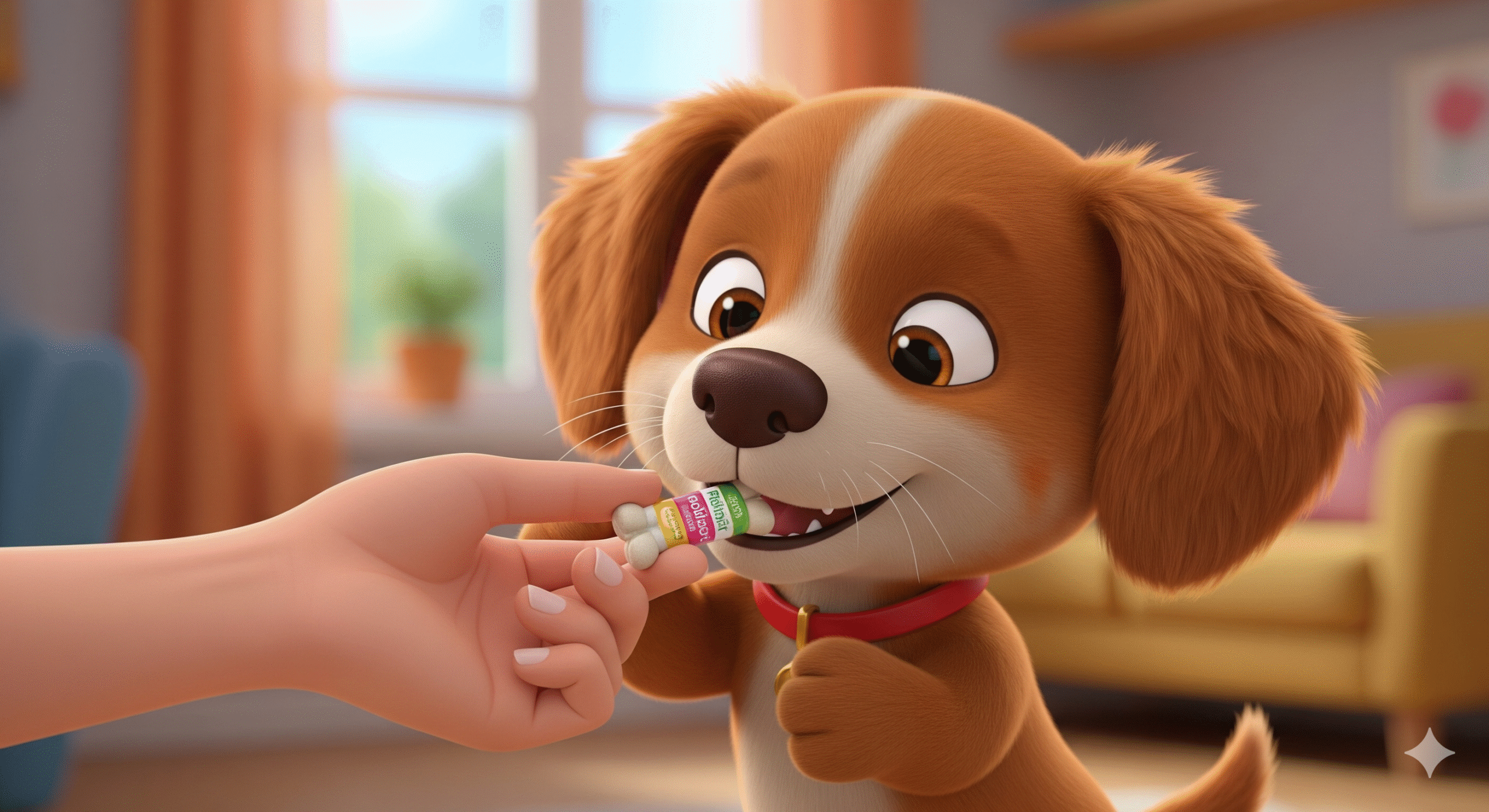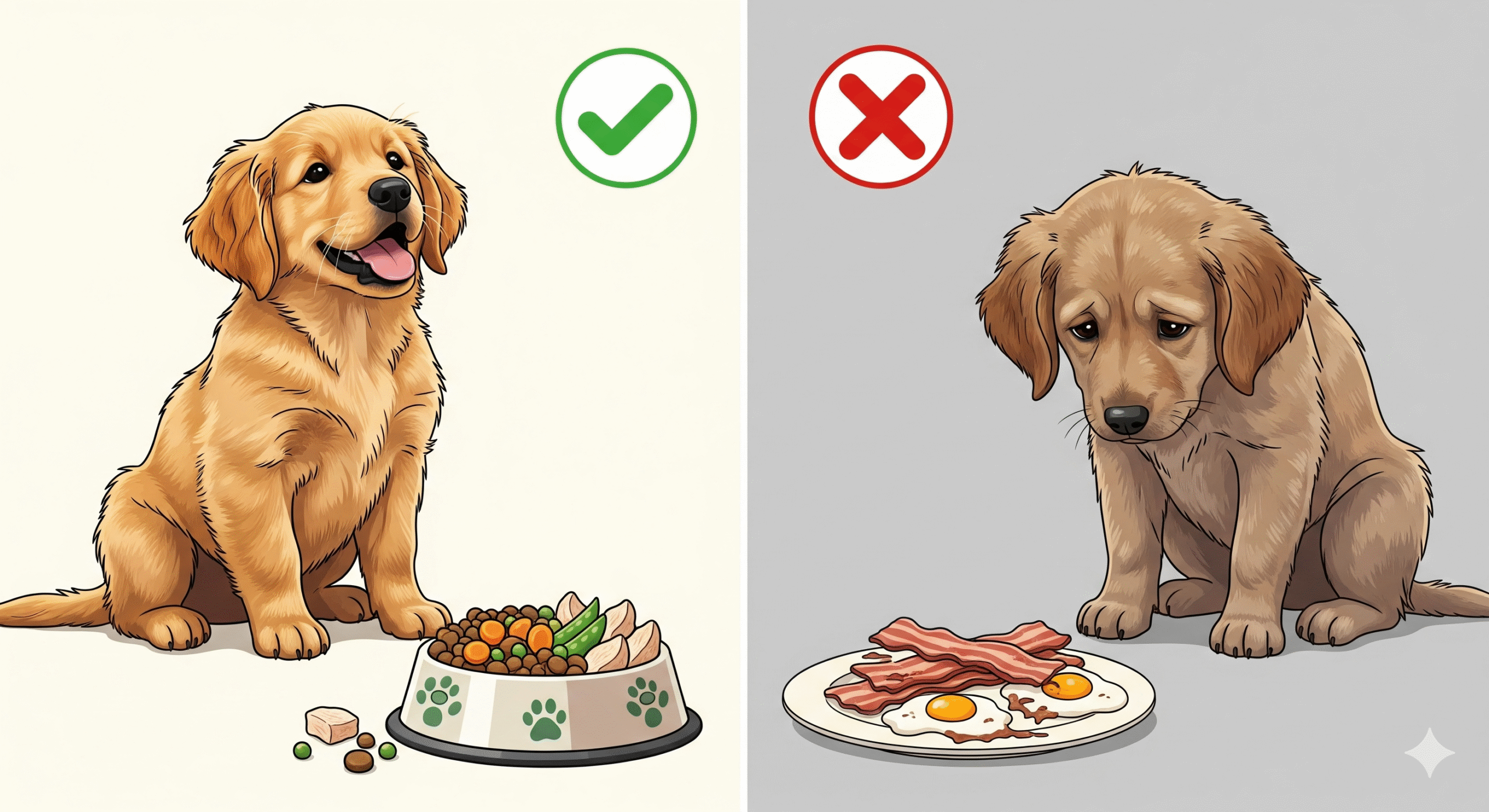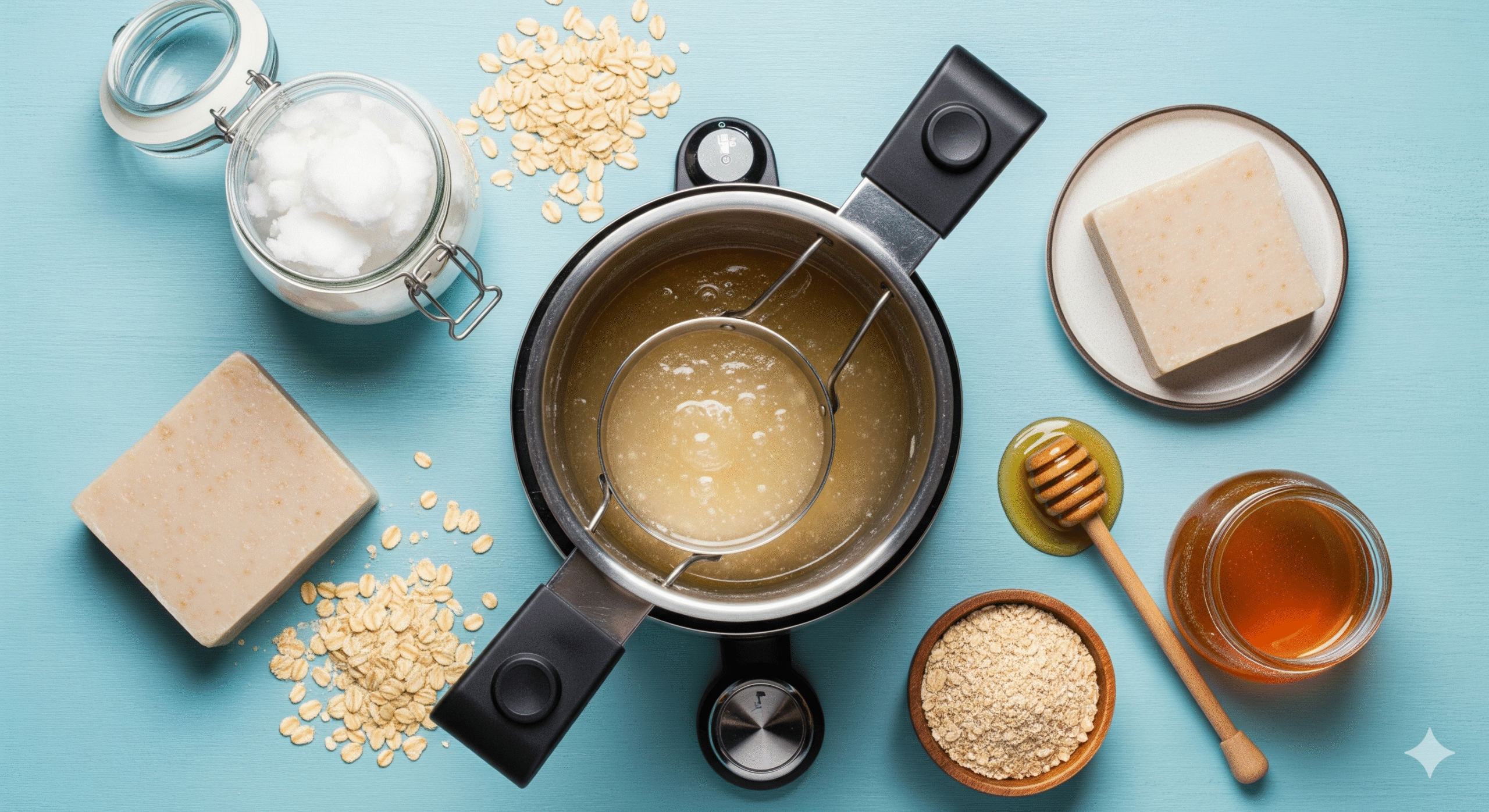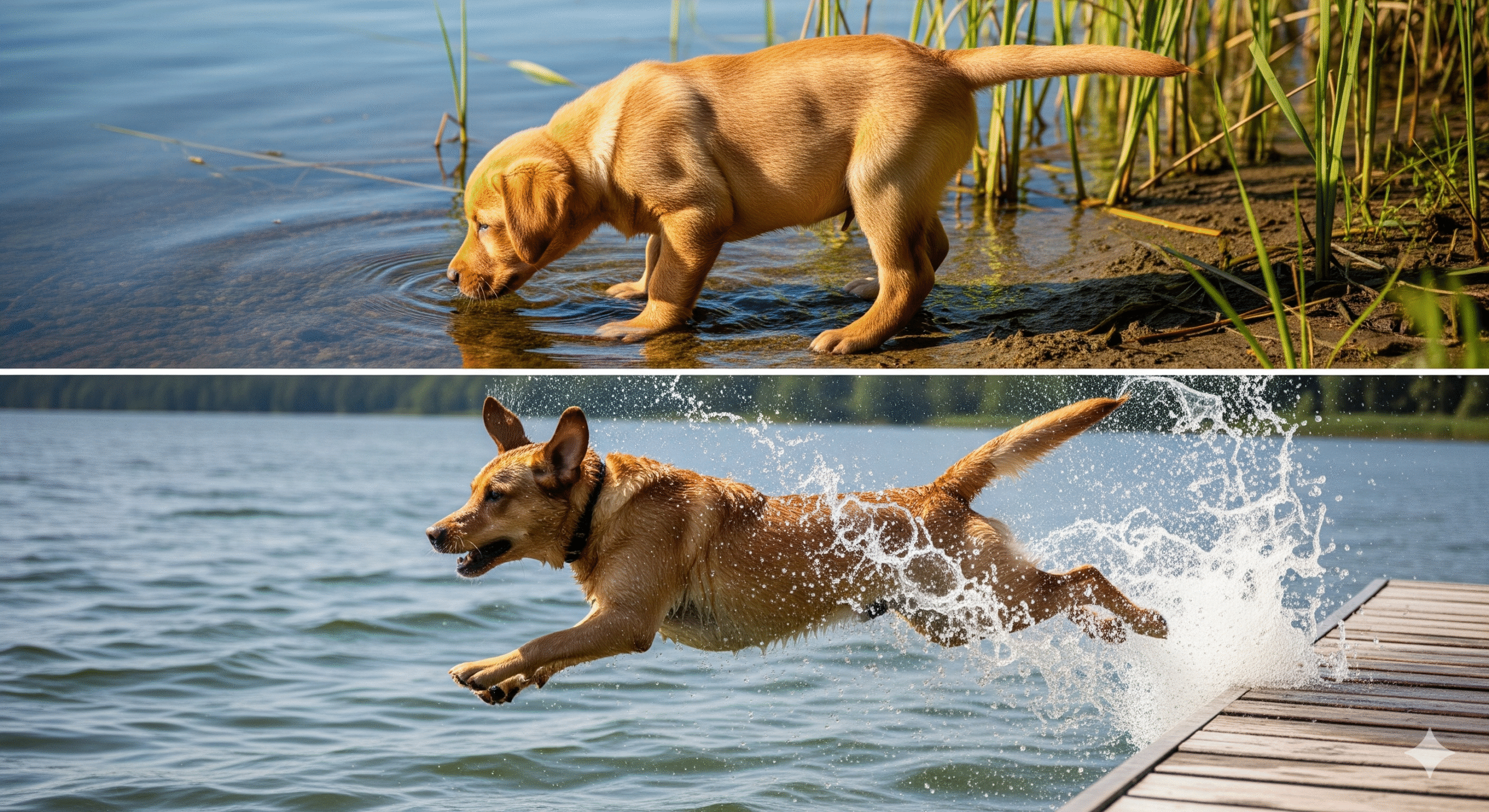Your puppy’s gut is a bustling metropolis of bacteria, both good and bad. This community, known as the gut microbiome, plays a surprisingly vast role in their overall health, influencing everything from digestion and nutrient absorption to immune function and even behavior. Probiotics for puppies are live, beneficial bacteria that can help support this delicate ecosystem, especially during times of stress or imbalance. But with shelves full of options and conflicting advice, how do you know if your puppy needs one and which one to choose?
This comprehensive guide will demystify the world of canine probiotics, separating science from marketing hype. We’ll provide a clear, evidence-based roadmap to help you make an informed decision about supporting your puppy’s digestive health from the inside out.
Here’s what we’ll cover:
✔️ What probiotics are and how they work in your puppy’s unique digestive system
✔️ The specific situations where probiotics can be most beneficial
✔️ How to choose a high-quality, effective probiotic from the sea of options
✔️ The key strains of bacteria to look for and those to avoid
✔️ Potential side effects and when to avoid probiotics altogether
✔️ Veterinary insights on integrating probiotics into your puppy’s care routine
Let’s explore how these tiny microorganisms can make a big difference in your puppy’s health.
What Are Probiotics and How Do They Work? 🧐
Think of your puppy’s gut as a garden. The goal is to cultivate a lush, diverse landscape of beneficial plants (good bacteria) that crowd out the weeds (bad bacteria).
- Probiotics are like adding premium, beneficial seeds to this garden.
- Prebiotics are the fertilizer that helps those good seeds grow. They are specialized plant fibers that feed the beneficial bacteria.
When administered, these live microorganisms take up residence in the gastrointestinal tract, where they:
- Crowd Out Pathogens: They compete with harmful bacteria for space and resources.
- Support the Gut Lining: They help maintain a healthy intestinal barrier, preventing “leaky gut.”
- Produce Beneficial Compounds: Some strains produce short-chain fatty acids that nourish gut cells and vitamins like B and K.
- Modulate the Immune System: A huge portion of the immune system resides in the gut. A healthy microbiome helps “train” it to respond appropriately.
When to Consider Probiotics for Your Puppy: 5 Key Scenarios 🚨
Probiotics aren’t necessarily needed for every healthy puppy. They are most effective during times of digestive or immune system stress.
1. During and After Antibiotic Treatment 💊
- Why: Antibiotics are designed to kill bacteria, but they are not selective—they wipe out both the bad and the good bacteria in the gut. This often leads to antibiotic-associated diarrhea.
- Protocol: Give the probiotic 2-3 hours apart from the antibiotic dose. Continue the probiotic for at least 1-2 weeks after the antibiotic course is finished to help repopulate the gut.
2. Digestive Upset (Diarrhea or Soft Stool) 🤢
- Why: Whether from stress, dietary indiscretion (eating something they shouldn’t have), or a mild infection, diarrhea signifies a disrupted microbiome.
- Protocol: A probiotic can help shorten the duration of diarrhea and restore normal stool consistency. Always consult your vet first to rule out serious causes like parasites or parvo.
3. During Stressful Events 😥
- Why: Stress (e.g., coming home from the breeder, moving, loud noises, training classes) can negatively alter the gut microbiome.
- Protocol: Starting a probiotic a few days before a known stressful event can help support gut health and potentially reduce anxiety-related digestive issues.
4. Dietary Transitions 🔄
- Why: Switching your puppy’s food can temporarily disrupt their digestive system. A probiotic can provide support during this changeover.
- Protocol: Begin the probiotic a few days before you start the food transition and continue through the 7-10 day switch process.
5. For General Immune Support 🛡️
- Why: Some owners choose to use probiotics preventatively for puppies with sensitive systems or during high-risk seasons (like kennel cough season at daycare).
- Protocol: This should be done under the guidance of your veterinarian.
How to Choose the Best Probiotic for Your Puppy: A Buyer’s Guide 🔍
Not all probiotics are created equal. Many over-the-counter products are ineffective. Here’s what to look for:
1. Look for a Guaranteed Analysis ✅
The label should clearly state:
- The genus, species, and strain of each bacteria (e.g., Lactobacillus acidophilus LA-5).
- The number of Colony Forming Units (CFUs) guaranteed at the time of expiration, not manufacture. Look for a product in the 1-5 billion CFU range for puppies.
2. Seek Out Soil-Based Strains (Bacillus) 🌱
- Why: Strains like Bacillus coagulans are spore-forming. This means they have a protective shell that allows them to survive the acidic environment of the stomach and reach the intestines intact, unlike many more fragile strains.
- Vet Preference: Many veterinarians prefer these strains for their proven efficacy and stability.
3. Multiple Strains are Beneficial 🔬
- Why: Different strains have different benefits. A product with 3-5 well-researched strains is like diversifying your investment portfolio for gut health.
4. Ensure It’s Puppy-Specific or Puppy-Safe 🐶
- Why: Puppies have different needs than adult dogs. Some human probiotics contain strains or additives that aren’t ideal for dogs. Always choose a product formulated for dogs or, ideally, puppies.
5. Packaging Matters 📦
- Probiotics are live organisms. They must be protected from light, heat, and moisture.
- Look for dark, glass bottles or blister packs that preserve potency.
- Avoid powders in large, clear plastic tubs that are opened repeatedly.
Veterinary-Recommended Probiotic Strains for Puppies 🦠
Look for these well-researched strains on the label:
- Enterococcus faecium SF68: One of the most studied strains for dogs, proven to help with diarrhea.
- Bacillus coagulans: A highly stable, soil-based strain excellent for immune and digestive support.
- Bifidobacterium animalis: A strong strain for improving stool quality.
- Lactobacillus acidophilus: A common and beneficial strain for general gut health.
Potential Side Effects & When to Avoid ❌
- Side Effects: Are rare and usually mild. They can include gas, bloating, or constipation as the gut adjusts. These typically resolve within a few days.
- When to Avoid: Do not give probiotics to a puppy who is severely immunocompromised, is critically ill, or has pancreatitis, without direct veterinary supervision. Always consult your vet before starting any new supplement.
Final Checklist for Using Puppy Probiotics ✅
☑️ I have consulted my veterinarian about using a probiotic.
☑️ I am using it for a specific reason (antibiotics, diarrhea, stress).
☑️ I have chosen a product with a guaranteed analysis of specific strains and CFUs.
☑️ The product is packaged in a way that protects the live bacteria.
☑️ I am administering it correctly (e.g., 2-3 hours apart from antibiotics).

Need to Help Your Puppy Gain Weight? If you’ve determined your puppy is underweight, know that with the right approach, you can help them thrive. The key is a method that supports their growth without overwhelming their digestive system. For a vet-approved plan focused on nutrition and care, please read our supportive guide: Underweight Puppy: How to Help Them Gain.






